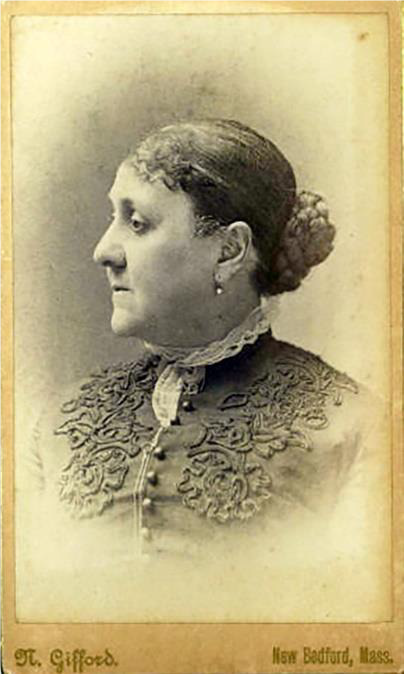When 20,000 textile workers went on strike in the 1928 New Bedford Textile Workers Strike, 18-year-old factory worker Eulalia Mendes (1910-2004) became a leader in her mill and community by promoting Portuguese industrial migrant worker participation in the strike. Later, she traveled nationwide to support other uprisings in the fight for justice and equality. Arrested and scheduled for deportation in 1953, Eulalia received asylum from Poland, where she lived for 50 years.
The year 1928 in New Bedford was marked by a strike of over 20,000 textile workers; for 18-year-old Eulalia Mendes (1910-2004), this strike was a call to action.
Born in 1910 in the city of Gouveia in northern Portugal, “Eula” left Portugal with her working class family in 1912 and settled in New Bedford, a textile city with a large Portuguese-speaking community. Eula’s father worked in the factories until he became ill. Eula became the primary breadwinner as a bobbin worker at the City Mill textile factory at age 14. When New Bedford textile workers went on strike in opposition to a wage cut planned by the factory owners in 1928, Eula began attending meetings run by regional and national labor organizers. She became a leader in her mill and in her community by promoting Portuguese industrial migrant worker participation in the strike. Eula translated speeches into Portuguese and then began to give the speeches herself. She became an organizer for the communist-influenced Textile Mill Committee, which requested a wage increase, an eight-hour day, a five-day week, and an end to child labor. Eventually, Eula became a member of the strike’s executive committee.
The National Guard, called in by New Bedford’s mayor to break up the strike, used force and arrested many strikers, including Eula. Eventually, the strikers accepted a smaller pay cut and returned to work. For Eula, the 1928 New Bedford Textile Workers Strike sparked a life of union organizing. She traveled nationwide with the International Ladies Garment Workers and other unions to support other uprisings in the fight for justice and equality. Eula’s activism continued with her Communist Party affiliation in New Bedford and the region, and she refused to sign a Loyalty Pledge to promise that she was not a Communist.
Eula’s arrest record prevented her from becoming a naturalized United States citizen. At the same time, the FBI labeled foreign-born labor organizers as subversive aliens, increasing their vulnerability to deportation. Eula was detained on Ellis Island for about six months as part of an anti-communist campaign to silence and imprison labor activists. In 1953, she was scheduled for deportation as a subversive alien despite support from friends and allies to reverse the decision. Since fascist Portugal was exiling or executing returned leftists, Eula’s birthplace was not a good option. Eventually, she received asylum from Poland and was allowed to leave the United States.
When the Portuguese community in New Bedford took on Americanization goals, Eula’s activities were seen as un-American and un-Portuguese by many. Nevertheless, she remained committed to creating a more just society by opposing power inequalities and supporting migrant worker rights.
As an expatriate in Poland, Eulalia learned the Polish language and joined the Communist Party, working for the Party’s Portuguese language radio in Warsaw. She married a Polish man to become Eulalia Matusiak and remained in Poland for 50 years, longer than she had lived in either Portugal or the U.S. While in exile, she regularly corresponded with friends in the U.S. and Europe. In 2004, Eulalia died in Poland.
Learn more about Eulalia Mendes in this story, which is part of the digital exhibit Organizing New Bedford: Women Who Mobilized Change.
Ann O’Leary, Emily Bourne Research Fellow
Information from
-
Buff, Rachel Ida. A Is for Asylum Seeker: Words for People on the Move. Fordham UP, 2020.
-
da Silva, Lurdes C. “Eula Mendes: The Life Behind a Legacy of Migrant Labor Activism.” OJornal.com, 24 Jan. 2020, https://www.heraldnews.com/news/20200124/eula-mendes-life-behind-legacy-of-migrant-labor-activism.
-
Moniz, Miguel. “UMass Dartmouth Speaker Series – Eulalia Mendes: The Life Behind a Legacy.” Dartmouth Community Media, 8 Feb. 2020, http://75.147.58.17/CablecastPublicSite/show/5670?channel=1.
![[Eulalia Mendes], c. 21st century, Photograph, Courtesy of O Jornal Photograph of Eulalia Mendes -- headshot of woman with short white hair wearing a colorful collared button-up shirt.](https://historicwomensouthcoast.org/wp-content/uploads/2020/06/Eulalia-Mendes-280x280-1.jpg)




